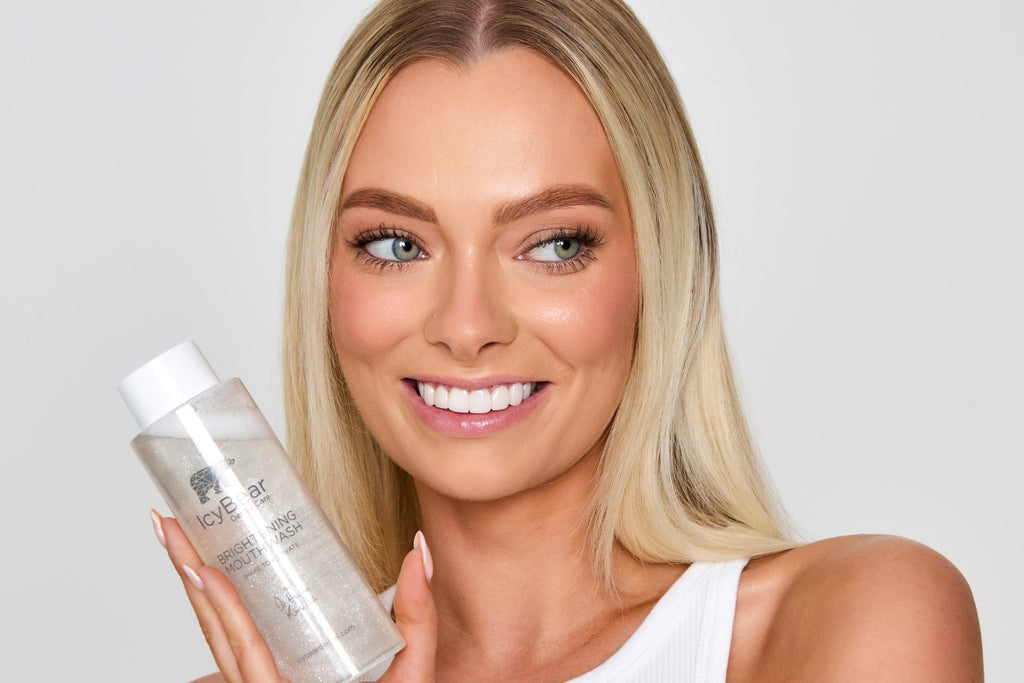Does Mouthwash Really Work? The Truth About Its Benefits

When it comes to oral hygiene, many of us turn to mouthwash as an essential part of our daily routine. But does mouthwash really work, or is it just another product we use for a quick breath fix? In this article, we will explore the benefits of mouthwash, how it supports oral health, and the different types available, from alcohol-free mouthwash to anti-cavity mouthwashes. By the end, you’ll know whether mouthwash truly deserves a spot in your dental hygiene routine.
What Is Mouthwash?
Mouthwash is a liquid product designed to clean the mouth, freshen breath, and sometimes offer additional benefits such as cavity prevention or gum disease control. Mouthwash products come in a variety of types, often formulated with specific active ingredients. For example, fluoride-containing mouthwash helps protect against dental plaque and tooth decay, while alcohol-free mouthwash provides a gentler yet effective solution for controlling oral bacteria.
Can Mouthwash Help With Bad Breath?
One of the most popular uses for mouthwash is to combat bad breath. It’s a quick and convenient fix to rid your mouth of unpleasant odours, often caused by bad breath germs. Many mouthwashes contain antibacterial ingredients that kill the oral bacteria responsible for bad breath. However, mouthwash should not be relied upon as a long-term solution for bad breath. If you experience chronic bad breath, it's essential to consult a dental professional, as it could be a sign of an underlying oral condition, such as gum disease or dry mouth.
Mouthwash and Gum Disease Prevention
Mouthwash plays an important role in preventing gum disease, which can lead to serious periodontal issues if left untreated. Certain antibacterial mouthwashes help reduce dental plaque and prevent the build-up of harmful bacteria that can irritate the gums. Regular use of mouthwash, especially those formulated with Sodium Fluoride & Cetylpyridinium Chloride, can help promote dental health by reducing inflammation and killing harmful bacteria in the mouth.
Can Mouthwash Prevent Tooth Decay?
Yes, mouthwash can help prevent tooth decay, particularly those with fluoride. Fluoride mouthwash is effective at strengthening enamel and preventing cavities by remineralising the teeth. By using fluoride mouthwash as part of your oral hygiene routine, you add an extra layer of protection to your teeth, complementing your regular brushing. Keep in mind, however, that mouthwash should be used alongside brushing to achieve the best results in protecting against dental plaque and oral bacteria.
How Often Should You Use Mouthwash?
The frequency of mouthwash use depends on the product and your personal needs. For most people, using mouthwash twice a day—once in the morning and once before bed—will provide the most benefit. Mouth rinses containing fluoride can be used multiple times per day to strengthen teeth and prevent tooth decay.
Are There Any Risks of Using Mouthwash?
Mouthwash is generally safe when used as directed, but there are some risks associated with overuse. Alcohol-containing mouthwashes can lead to dry mouth, which in turn can cause a build-up of dental plaque and increase the risk of oral bacteria. In rare cases, excessive use can lead to taste disturbance or even oral lesions. Be sure to follow the instructions carefully and choose a mouthwash that complements your dental hygiene routine.
Conclusion: Is Mouthwash Worth Adding to Your Routine?
In conclusion, mouthwash can be an effective part of your oral hygiene routine, offering benefits like fresh breath, bacteria control, and cavity prevention. While it should not replace regular brushing and flossing, incorporating the right mouthwash products can enhance your dental health by targeting bacteria and preventing gum disease and tooth decay. Whether you choose fluoride mouthwash for added protection or alcohol-free mouthwash for gentle care, make sure it suits your specific needs.
FAQ's
How often should I use mouthwash in my oral hygiene routine?
It’s typically recommended to use mouthwash twice a day—once in the morning and once before bed. This ensures that the active ingredients in the mouthwash, such as fluoride or antibacterial agents, have time to work. For those with specific concerns like gum disease or bad breath, you may want to use mouthwash more frequently, but always follow the product’s instructions.
Can mouthwash replace brushing and flossing?
No, mouthwash should never replace regular brushing and flossing. Brushing removes dental plaque, while mouthwash acts as an additional step to kill bacteria and freshen breath. It’s crucial to use mouthwash alongside brushing for the best results in maintaining oral health.
Are alcohol-free mouthwashes effective?
Yes, alcohol-free mouthwash can be just as effective as alcohol-based alternatives, especially for those with sensitive mouths or dry mouth. These gentle formulas can help kill bacteria and freshen breath without the drying effects of alcohol. Look for an alcohol-free mouthwash if you’re concerned about irritation or discomfort.
Can mouthwash help with bad breath conditions?
Mouthwash can temporarily help with bad breath by killing the bad breath germs that cause odour. However, it’s not a permanent solution. If you frequently suffer from bad breath, it’s essential to identify and address the underlying cause, such as gum disease, dry mouth, or poor diet. Mouthwash provides a quick and easy way to freshen breath temporarily, but regular care is key to lasting results.
Is mouthwash safe for long-term use?
Mouthwash is safe for long-term use when used as directed. However, overuse, especially of alcohol-containing mouthwashes, can lead to dry mouth and irritation. If you experience any adverse effects, such as taste disturbance or oral lesions, consider switching to a gentler, alcohol-free mouthwash or consult your dentist for advice on the best option for your needs.




